The Definition of Home
Be it ever so humble, it’s more than just a place. It’s also an idea—one where the heart is
Verlyn Klinkenborg

When did “home” become embedded in human consciousness? Is our sense of home instinctive? Are we denning animals or nest builders, or are we, at root, nomadic? For much of the earliest history of our species, home may have been nothing more than a small fire and the light it cast on a few familiar faces, surrounded perhaps by the ancient city-mounds of termites. But whatever else home is—and however it entered our consciousness—it’s a way of organizing space in our minds. Home is home, and everything else is not-home. That’s the way the world is constructed.
Not that you can’t feel “at home” in other places. But there’s a big psychological difference between feeling at home and being home. Feeling at home on the Tiwi Islands or in Bangalore or Vancouver (if you are not native) is simply a way of saying that the not-home-ness of those places has diminished since you first arrived. Some people, as they move through their lives, rediscover home again and again. Some people never find another after once leaving home. And, of course, some people never leave the one home they’ve always known. In America, we don’t know quite what to say about those people.
Homesick children know how sharp the boundary between home and not-home can be because they suffer from the difference, as if it were a psychological thermocline. I know because I was one of them. I felt a deep kinship almost everywhere in the small Iowa town I grew up in. But spending the night away from home, at a sleepover with friends, made every street, every house seem alien. And yet there was no rejoicing when I got back home in the morning. Home was as usual. That was the point—home is a place so profoundly familiar you don’t even have to notice it. It’s everywhere else that takes noticing.
In humans, the idea of home almost completely displaces the idea of habitat. It’s easy to grasp the fact that a vireo’s nest is not the same as her habitat and that her habitat is her true home. The nest is a temporary annual site for breeding, useful only as long as there are young to raise. But we are such generalists—able to live in so many places—that “habitat,” when applied to humans, is nearly always a metaphor. To say, “My home is my habitat” is true and untrue at the same time.
Yet our psychological habitat is shaped by what you might call the magnetic property of home, the way it aligns everything around us. Perhaps you remember a moment, coming home from a trip, when the house you call home looked, for a moment, like just another house on a street full of houses. For a fraction of a second, you could see your home as a stranger might see it. But then the illusion faded and your house became home again. That, I think, is one of the most basic meanings of home—a place we can never see with a stranger’s eyes for more than a moment.
And there’s something more. When my father died, my brothers and sisters and I went back to his house, where he’d lived alone. It wasn’t only his absence we felt. It was as though something had vanished from every object in the house. They had, in fact, become merely objects. The person whose heart and mind could bind them into a single thing—a home—had gone.
Get the latest Science stories in your inbox.

Essays About Home: Top 5 Examples and 7 Writing Prompts
Writing essays about home depicts familial encounters that influence our identity. Discover our guide with examples and prompts to assist you with your next essay.
The literal meaning of home is a place where you live. It’s also called a domicile where people permanently reside, but today, people have different definitions for it. A home is where we most feel comfortable. It’s a haven, a refuge that provides security and protects us without judgment.
Parents or guardians do their best to make a home for their children. They strive to offer their kids a stable environment so they can grow into wonderful adults. Dissecting what a home needs to ensure a family member feels safe is a vital part of writing essays about home.
| IMAGE | PRODUCT | |
|---|---|---|
| Grammarly | ||
| ProWritingAid |
5 Essay Examples
1. the unique feeling of home by anonymous on ivypanda.com, 2. where i call home by anonymous on gradesfixer.com, 3. a place i call home by anonymous on toppr.com, 4. the meaning of home by anonymous on ivypanda.com, 5. what makes a house a home for me by anonymous on gradesfixer.com, 1. true meaning of home, 2. the difference between a home and a house, 3. homes and emotions, 4. making our house feel like home, 6. home as a vital part of our lives, 7. a home for a kid.
“Nowadays, as I moved out, the place feels alien since I spend the whole time in the house during my visits to my parents. They treat me like a guest in their home – in a good sense; they try to be attentive to me and induce dialogue since I stay there for a short time, and they want to extract the maximum of their need for interaction with me.”
In this essay, a visit to the author’s parents’ house made them realize the many things they missed. They also can’t help but compare it to their current home. The writer states family conflict as the reason for their moving out and realizes how fast they adapted to their new environment.
Returning to their childhood home brings out mixed emotions as they ponder over the lasting influence of their past on their present personality. The author recognizes the importance of the experiences they carry wherever they go. In the end, the writer says that a home is anywhere they can belong to themselves and interact with those they hold dear. You might be interested in these essays about city life .
“The noteworthy places where I lived are the places I have made my home: where I can walk around with a birds’ nest on my head and a pair of old sweatpants in the middle of summer, where I can strip myself bear of superficial emotions…”
The essay starts with vivid descriptions of the author’s home, letting the reader feel like they are in the same place as the narrator. The author also considers their grandmother’s and friend’s houses his home and shares why they feel this way.
“My home is important to me because for better or worse, it helps me belong. It makes me understand my place in time and connect with the world and the universe at large. Thus, I am grateful to have a place I can call home.”
In this essay, the author is straightforward in sharing the features of their home life, including where their house is located, who lives in it, and other specific details that make it a home. It’s an ancestral home with vintage furniture that stands strong despite age.
The writer boasts of their unrestricted use of the rooms and how they love every part of it. However, their best memories are linked to the house’s terrace, where their family frequently spends time together.
Looking for more? Check out these essays about dream house .
“Home is a word that means a lot in the life of every person. For some, this is a place to come after hard work to relax and feel comfortable. For others, this is a kind of intermediate point from which they can set off towards adventure.”
A home is where a person spends most of their life, but in this essay, the writer explains that the definition varies per an individual’s outlook. Thus, the piece incorporates various definitions and concepts from other writers. One of them is Veronica Greenwood , who associates homes with a steaming bowl of ramen because both provide warmth, comfort, and tranquility. The author concludes by recognizing individuals’ ever-changing feelings and emotions and how these changes affect their perception of the concept of a home.
“It is where the soul is… what makes my house a home is walking through the front door on a Friday evening after praying Zuhr prayer in the masjid and coming back to the aroma of freshly cooked delicious biryani in the kitchen because my mom knows it’s my favorite meal.”
This essay reflects on the factors that shape a house to become a home. These factors include providing security, happiness, and comfort. The author explains that routine household activities such as cooking at home, watching children, and playing games significantly contribute to how a home is created. In the end, the writer says that a house becomes a home when you produce special memories with the people you love.
7 Prompts for Essays About Home

The definition of a home varies depending on one’s perspective. Use this prompt to discuss what the word “home” means to you. Perhaps home is filled with memories, sentimental items, or cozy decor, or maybe home is simply where your family is. Write a personal essay with your experiences and add the fond memories you have with your family home.
Check out our guide on how to write a personal essay .
Home and house are two different terms with deeper meanings. However, they are used interchangeably in verbal and written communication. A house is defined as a structure existing in the physical sense. Meanwhile, a home is where people feel like they belong and are free to be themselves.
In your essay, compare and contrast these words and discuss if they have the same meaning or not. Add some fun to your writing by interviewing people to gather opinions on the difference between these two words.
The emotions that we associate with our home can be influenced by our upbringing. In this essay, discuss how your childhood shaped how you view your home and include the reasons why. Split this essay into sections, each new section describing a different memory in your house. Make sure to include personal experiences and examples to support your feelings.
For example, if you grew up in a home that you associate positive memories with, you will have a happy and peaceful association with your home. However, if your upbringing had many challenging and stressful times, you may have negative emotions tied to the home.
The people inside our home play a significant role in how a house becomes a home. Parents, siblings, and pets are only some of those that influence a home. In this prompt, write about the items in your home, the people, and the activities that have made your house a home.
Describe your home in detail to make the readers understand your home life. Talk about the physical characteristics of your house, what the people you live with make you feel, and what you look forward to every time you visit your home. You can also compare it to your current home. For example, you can focus your essay on the differences between your childhood home and the place you moved in to start your independent life.
Home is the one place we always go back to; even if we visit other places, our home is waiting for our return. In this prompt, provide relevant statistics about how much time a person spends at home and ensure to consider relevant factors such as their profession and age group. Using these statistics, explain the importance of a home to the general population, including the indications of homelessness.

There are 135,000 children adopted in the US each year. These children become orphans for various reasons and are adopted by their guardians to support and guide them through life. For this prompt, find statistics showing the number of unaccompanied and homeless children.
Then, write down the government programs and organizations that aim to help these kids. In the later part of your essay, you can discuss tips on how a foster family can make their foster kids feel at home. For help picking your next essay topic, check out our 20 engaging essay topics about family .

- Relationships
The Meaning of "Home"
Four approaches to studying "home" show how home affects our experiences..
Posted November 4, 2021 | Reviewed by Michelle Quirk
- “Home” researchers might study environmental psychology, memory and attachment theory, a hierarchy of needs, and identity.
- Resources guide us toward different ways of thinking about, understanding, and developing notions of “home.”
- "Home" and "family" are not necessarily synonymous; nor are they always "happy".

When you ask yourself, “What does home mean to me?," how does your inner voice respond? Has your answer to the question changed as your life and circumstances have changed? Mine certainly has, as I recently described in an essay on my personal blog, "Love Is Real."
I wonder how many people remember learning to read and to print and then endlessly writing out their name, street address, town or city, state, perhaps a zip code (those did not exist when I was a child), country, continent, and then maybe “World,” possibly followed by “Universe.” What is this urge to situate ourselves in space, in a geographic location, especially one centered around our earliest memories of where we lived?
Four ways of looking at these questions ask if “home” is defined by the following:
- Environmental cues and their impact on our perception, cognition , emotions, behaviors, and relationships.
- A hierarchy of needs and the context in which the most basic of them are met.
- Emotional memories and fantasies along with their impact, including memory -driven attachment scripts that a person wants to implement or avoid.
- Our sense of identity and belonging, extending to and beyond group memberships.
But, first, before we dive into the topic, a caveat. In the spring of 1986 or 1987, the Whitney Museum of American Art branch in the Champion building in Stamford, Connecticut, offered the public a gripping look into the dark side of “home.” Noting that much media and many people associate home with positive experiences — often idealized ones — the curators chose to acknowledge that the reality often fails to match a desire or wish. Artists depicted homes plagued by violence, addiction , exploitation, chaos, and ill will.
These are the dwellings that easily produce traumatized children and eventually adults, those studied in Adverse Childhood Experiences research , who are at risk for developmental disruptions as well as emotional, cognitive, physical, and relationship problems. The consequences are tragic and many — see the list of resources curated by the Centers for Disease Control and Prevention . “Home” is not necessarily a synonym for “happy place.”
4 Perspectives on Home
1. Environmental psychology . Research on person–environment relationships can include the study of spaces where people dwell. Environmental psychologists have documented qualities to which homes expose people, like noise levels, toxins, emotional climates, crowding (or its absence), and their impact on all aspects of experience, from the personal (biological, cognitive, emotional, behavioral) to the social. Organizational psychologists often use or adapt these methods and the literature to maximize an organization’s goals . Another branch, architectural psychology, focuses on the impact of design to amplify positive or minimize negative impact. Applications range from single-person dwellings to community institutions, from a treehouse to a hospital.
Around the world, when the COVID-19 pandemic began, people became interested in homes in new ways. They sought housing opportunities that would provide more inside space and greater access to the outdoors. Alternately, isolated living “pods” popped up, housing university students banished from their dorm, families educating small children, people yearning to be in a situation that included a “safe” community.
2. A hierarchy of needs. Maslow’s hierarchy of needs comes to mind as we examine what people who moved during the pandemic were searching for: greater attention to meeting survival needs for shelter, nutrition , hygiene, safety, work and play, and interpersonal needs for contact, communication, companionship, and belonging.
When social interaction changed dramatically during the COVID-19 pandemic, external sources of

spiritual and cultural nourishment decreased, and countless people, rather than searching for an alternative living arrangement like a different residence or a pod, turned their attention to their current homes, what they might potentially provide, and what they required in maintenance. Countless practical modifications were put in place. They expanded exponentially as the number of people in a living space grew. “Family” definitions broadened to include those related by blood, marriage , or choice, with “home” embracing those who lived together and intended to continue living together following the crisis, at least according to the American Red Cross.
3. Attachment and memory . A broader definition of “family” makes room for another aspect of “home,” that which sees home as the center for forging and nourishing human attachment bonds. "Home" includes primary locations where early memories and their emotions result in attachment scripts and their consequences. A sense of belonging securely or less so persists into adulthood or until changes in unconscious expectations make room for revised understanding. 1

Two more caveats: “Family” and “home” can be separate as well as associated, and they can be temporary. Long-distance relationships are currently flourishing; those in them dwell apart. And, as mentioned above, “family” can refer to people who live together by choice and are not related by legal or blood bonds, at least for many purposes. Therefore, attachment-oriented researchers often focus on the symbiotic relationships of those who cohabit by choice.
In contrast, scholars who study migration more broadly emphasize the “push” away from a current residence and “pull” toward a new one. Attachment to either "homeland" can be weak or fierce. Along these lines, researchers might investigate places in which basic cultural beliefs are imprinted along with the geography of the location. 2 In both cases, culture and a sense of belonging (or not) are absorbed systemically and often unconsciously, as suggested by Bronfenbrenner's theory of ecological development.
4. Identity and possible selves. From a personality perspective, we craft an identity from internal
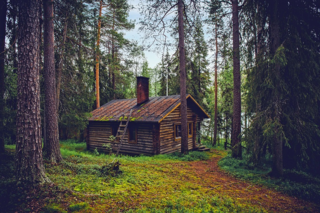
experiences like temperament, needs, and desires, as well as through our relationships with others and with the larger social and cultural systems in which we are embedded. Our own imagination creates what Hazel Markus has labeled “ possible selves ,” imagery of who we might become. From this perspective, “home” is one context in which such creation can take place. It can become an expression of personal choices and aspirations as well as history.
In a different approach, family process psychologists often talk about ways in which people use or construct boundaries , connections, and communications. Space is both material and metaphor. It represents how a small group of related individuals expresses values and their implementation.
What has “home” been for you? Has its meaning changed during your adult life?
2021 Copyright Roni Beth Tower
1. Simpson, J. A. & Rholes, W. S. (Eds.) (1998). Attachment Theory and Close Relationships . New York: Guilford Press.
2. Tuan, Yi-Fu (1977). Space and Place. Minneapolis and London: University of Minnesota Press.

Roni Beth Tower, PhD, a retired clinical, research and academic psychologist, earned a BA from Barnard (Religion), her PhD from Yale, and did postdoctoral work in epidemiology and public health at Yale Medical School.
- Find a Therapist
- Find a Treatment Center
- Find a Psychiatrist
- Find a Support Group
- Find Online Therapy
- United States
- Brooklyn, NY
- Chicago, IL
- Houston, TX
- Los Angeles, CA
- New York, NY
- Portland, OR
- San Diego, CA
- San Francisco, CA
- Seattle, WA
- Washington, DC
- Asperger's
- Bipolar Disorder
- Chronic Pain
- Eating Disorders
- Passive Aggression
- Personality
- Goal Setting
- Positive Psychology
- Stopping Smoking
- Low Sexual Desire
- Child Development
- Self Tests NEW
- Therapy Center
- Diagnosis Dictionary
- Types of Therapy

Sticking up for yourself is no easy task. But there are concrete skills you can use to hone your assertiveness and advocate for yourself.
- Emotional Intelligence
- Gaslighting
- Affective Forecasting
- Neuroscience
Most Popular
13 days ago
What is Digital Learning? Your Guide to Effective and Secure Online Education
What college classes should i take redditors share their opinions, ai-generated work floods university courses, reports the student on reddit, paperrater review, professor boosts pass rates by bringing math to the workplace, what is a home essay definition examples.
freepik.com

The given prompt: Is it a physical space, a feeling, or something entirely different?
When we think of the word “home,” it often evokes an image of a physical dwelling, with walls, a roof, and a comforting familiarity. However, delve a little deeper, and it becomes evident that the concept of home transcends bricks and mortar. In a world where people move, travel, and constantly adapt, the definition of home has beautifully morphed and expanded.
At its most basic level, yes, a home is a tangible space. It’s where one resides, keeps personal belongings, and returns to after a day’s work or travel. This physical space offers shelter, protection, and often a sense of ownership. It’s where meals are shared, memories are made, and seasons are witnessed. For many, the attachment to this space is profound, rooted in a sense of stability and permanence.
However, for others, especially those who have journeyed across cities, countries, or continents, home isn’t just a fixed address. It’s a feeling, an emotion that arises in spaces other than their birthplace or original dwelling. For a student studying abroad, home might be the dormitory where friendships are forged. For a traveler, it might be the camp under the starry sky or the cozy hostel room in a distant land. The emotion of home travels, adapts, and nestles in varied spaces.
Beyond the physical and emotional realms, home often takes on symbolic meanings. It can represent one’s roots, culture, or heritage. For an immigrant, home might be the melodies of native songs, the flavors of traditional recipes, or the stories passed down generations. Even miles away from their birth land, these cultural anchors offer a bridge, connecting them to the essence of home.
There’s also an introspective dimension to home. It’s the sanctuary within, the inner realm where one’s true self resides. In moments of solitude or reflection, individuals often retreat to this inner home, seeking solace, clarity, or simply a break from the external world’s cacophony. This internal sanctuary is as vital as any external dwelling, offering a space for rest, rejuvenation, and introspection.
Interestingly, relationships too can be homes. The embrace of a loved one, the understanding gaze of a friend, or the playful nudge of a pet – in these interactions, many find the warmth and comfort typically associated with home. Here, home is not bound by walls but by bonds of love, care, and understanding.
In today’s dynamic world, where change seems to be the only constant, the concept of home is both grounding and liberating. Grounding, because it offers a sense of belonging, and liberating, because it’s no longer confined to a singular space or definition.
In conclusion, home, in its rich, multifaceted glory, is a mosaic of spaces, feelings, memories, and relationships. Whether it’s the house at the end of the street, the aroma of a childhood dish, the memories of a cherished place, or the quiet space within, home is where the heart finds its anchor. And in this heart-space, whether tangible or intangible, lies the essence of comfort, belonging, and love.
Follow us on Reddit for more insights and updates.
Comments (0)
Welcome to A*Help comments!
We’re all about debate and discussion at A*Help.
We value the diverse opinions of users, so you may find points of view that you don’t agree with. And that’s cool. However, there are certain things we’re not OK with: attempts to manipulate our data in any way, for example, or the posting of discriminative, offensive, hateful, or disparaging material.
Cancel reply
Your email address will not be published. Required fields are marked *
Save my name, email, and website in this browser for the next time I comment.
More from 5 Paragraph Essay Examples and Samples
Influence of greek roots in english learning. essay sample and references.

Oct 23 2023
What Is Respect? Definition Essay Example

Jun 13 2023
Critical Threats to the Global Environment Essay Sample, Example
Remember Me
What is your profession ? Student Teacher Writer Other
Forgotten Password?
Username or Email
What does Home Mean to you
This essay will reflect on the concept of home and its varied meanings to different people. It will explore the emotional, cultural, and personal dimensions of what home represents, going beyond the physical structure to encompass feelings of comfort, belonging, and identity. The piece will include diverse perspectives on home, including those of people who have experienced displacement, migration, or have multiple places they consider home. At PapersOwl, you’ll also come across free essay samples that pertain to Communication.
How it works
Home is certainly not a place…It’s an inclination.” “What I love most about my house is who I share it with.” “There isn’t anything more significant than a decent, protected, secure home.” “Home is a spot you grow up needing to leave, and develop old needing to return to.” Home is the place where I was raised. Where I played, snickered, cried, and learned. It is the place where I developed. Where I became me, a solid, keen lady, certain about myself, in my future and from before.
I accept that a house is multiple dividers and a rooftop over head. Home is a climate. The inclination welcomes me when I stroll through the entryway. Individuals hang tight for me to return home. My house is my unshakable establishment, and I will take it with me when I leave. I accept that house is the place where people become themselves, not essentially actually however intellectually. It turns into a shape that structures what their identity is. Home for me is made of encounters, snapshots of my life that assisted with transforming me and to instruct me. Therefore, my house is likewise individuals and when home takes on a human structure, it is called family. I accept that family is a relative term, nothing to do with blood, characterized by connections. Regardless of where I go later on, my establishment will consistently sit solidly in this climate and with these individuals who have framed me personally and shown me how to live. I realize that I can generally get back home. All things considered, home is the place where the heart is.
Regardless of where I go later on, my establishment will consistently sit solidly in this climate and with these individuals who have framed me personally and shown me how to live. I realize that I can generally get back home. All things considered, home is the place where the heart is. By definition – A house is a structure worked for home where as a house is a residence worked for one’s family. In any case, a house is something more uncommon than that. A house is, where you feel great. A house is simply cover. A house is a spot that one loves to live in, yet a house one simply lives in. A house is worked with a family, yet a house has no aims of everyday life. “A house has a place with you, however you have a place with a home”.
At the point when you go through the paper, you discover numerous houses available to be purchased. Some of the time at city intersections, you discover signs saying that there is a house accessible for lease. A house is a spot where individuals reside. It offers cover. There might be a great many houses in the city wherein you live, however there is just one, which you call your home. The house which your family decide to live in turns into your home. The developer just built a house. At the point when you moved in, it turned into your home. Home is where your family is. It gives enthusiastic warmth and security. A house, then again, gives cover. Typically individuals purchase a home and sell a house. Individuals who are away from their home regularly gripe about being pining to go home, not housesick. What they need isn’t a rooftop over their head, yet the passionate warmth and security. These days, each city has a permanent place to stay for the matured. They are not called house for the matured on the grounds that these spots give cover as well as enthusiastic solace for the elderly folks individuals. Other typical statements in English are: There’s no spot like home, Home, sweet home, and Home is the place where the heart is. No one at any point substitutes the word house in any of these articulations.
Cite this page
What Does Home Mean To You. (2021, Apr 28). Retrieved from https://papersowl.com/examples/what-does-home-mean-to-you/
"What Does Home Mean To You." PapersOwl.com , 28 Apr 2021, https://papersowl.com/examples/what-does-home-mean-to-you/
PapersOwl.com. (2021). What Does Home Mean To You . [Online]. Available at: https://papersowl.com/examples/what-does-home-mean-to-you/ [Accessed: 5 Jul. 2024]
"What Does Home Mean To You." PapersOwl.com, Apr 28, 2021. Accessed July 5, 2024. https://papersowl.com/examples/what-does-home-mean-to-you/
"What Does Home Mean To You," PapersOwl.com , 28-Apr-2021. [Online]. Available: https://papersowl.com/examples/what-does-home-mean-to-you/. [Accessed: 5-Jul-2024]
PapersOwl.com. (2021). What Does Home Mean To You . [Online]. Available at: https://papersowl.com/examples/what-does-home-mean-to-you/ [Accessed: 5-Jul-2024]
Don't let plagiarism ruin your grade
Hire a writer to get a unique paper crafted to your needs.

Our writers will help you fix any mistakes and get an A+!
Please check your inbox.
You can order an original essay written according to your instructions.
Trusted by over 1 million students worldwide
1. Tell Us Your Requirements
2. Pick your perfect writer
3. Get Your Paper and Pay
Hi! I'm Amy, your personal assistant!
Don't know where to start? Give me your paper requirements and I connect you to an academic expert.
short deadlines
100% Plagiarism-Free
Certified writers
The Meaning of Home, by John Berger
Scrapbook of Styles
- An Introduction to Punctuation
- Ph.D., Rhetoric and English, University of Georgia
- M.A., Modern English and American Literature, University of Leicester
- B.A., English, State University of New York
A highly regarded art critic, novelist, poet, essayist, and screenwriter, John Berger began his career as a painter in London. Among his best-known works are Ways of Seeing (1972), a series of essays about the power of visual images, and G. (also 1972), an experimental novel which was awarded both the Booker Prize and the James Tait Black Memorial Prize for fiction .
In this passage from And Our Faces, My Heart, Brief as Photos (1984), Berger draws on the writings of Mircea Eliade, a Romanian-born historian of religion, to offer an extended definition of home .
The Meaning of Home
by John Berger
The term home (Old Norse Heimer , High German heim , Greek komi , meaning "village") has, since a long time, been taken over by two kinds of moralists, both dear to those who wield power. The notion of home became the keystone for a code of domestic morality, safeguarding the property (which included the women) of the family. Simultaneously the notion of homeland supplied the first article of faith for patriotism, persuading men to die in wars which often served no other interest except that of a minority of their ruling class. Both usages have hidden the original meaning.
Originally home meant the center of the world—not in a geographical, but in an ontological sense. Mircea Eliade has demonstrated how the home was the place from which the world could be founded . A home was established, as he says, "at the heart of the real." In traditional societies, everything that made sense of the world was real; the surrounding chaos existed and was threatening, but it was threatening because it was unreal . Without a home at the center of the real, one was not only shelterless but also lost in nonbeing, in unreality. Without a home everything was fragmentation.
Home was the center of the world because it was the place where a vertical line crossed with a horizontal one. The vertical line was a path leading upwards to the sky and downwards to the underworld. The horizontal line represented the traffic of the world, all the possible roads leading across the earth to other places. Thus, at home, one was nearest to the gods in the sky and to the dead of the underworld. This nearness promised access to both. And at the same time, one was at the starting point and, hopefully, the returning point of all terrestrial journeys. * Originally published in And Our Faces, My Heart, Brief as Photos , by John Berger (Pantheon Books, 1984).
Selected Works by John Berger
- A Painter of Our Time , novel (1958)
- Permanent Red: Essays in Seeing , essays (1962)
- The Look of Things , essays (1972)
- Ways of Seeing , essays (1972)
- G. , novel (1972)
- Jonah Who Will Be 25 in the Year 2000 , screenplay (1976)
- Pig Earth , novel (1979)
- The Sense of Sight , essays (1985)
- Once in Europe , novel (1987)
- Keeping a Rendezvous , essays (1991)
- To the Wedding , novel (1995)
- Photocopies , essays (1996)
- Hold Everything Dear: Dispatches on Survival and Resistance , essays (2007)
- From A to X , novel (2008)
- 5 Rivers of the Greek Underworld
- Learn How to Use Extended Definitions in Essays and Speeches
- 60 Writing Topics for Extended Definitions
- Using Links to Create Vertical Navigation Menus
- The Ancient Greek Underworld and Hades
- The Painting by Monet That Gave Impressionism Its Name
- The Life and Work of Man Ray, Modernist Artist
- How to Find the Lyra Constellation in the Night Sky
- A Sociological Understanding of Moral Panic
- The Underworld Adventure of Aeneas in The Aeneid
- The Basics of Lines and How to Use Them in Design
- Definition and Examples of Symbolism in Rhetoric
- 6 Realistic Styles in Modern Art
- Logos (Rhetoric)
- How Many Trips Hercules Made to the Underworld
- Craft and Criticism
- Fiction and Poetry
- News and Culture
- Lit Hub Radio
- Reading Lists

- Literary Criticism
- Craft and Advice
- In Conversation
- On Translation
- Short Story
- From the Novel
- Bookstores and Libraries
- Film and TV
- Art and Photography
- Freeman’s
- The Virtual Book Channel
- Behind the Mic
- Beyond the Page
- The Cosmic Library
- The Critic and Her Publics
- Emergence Magazine
- Fiction/Non/Fiction
- First Draft: A Dialogue on Writing
- The History of Literature
- I’m a Writer But
- Lit Century
- Tor Presents: Voyage Into Genre
- Windham-Campbell Prizes Podcast
- Write-minded
- The Best of the Decade
- Best Reviewed Books
- BookMarks Daily Giveaway
- The Daily Thrill
- CrimeReads Daily Giveaway

What Makes a House a Home?
Meghan daum on the complexities of where we take shelter.
In the canon of common dreams, it’s a classic among classics: the dream in which we discover an unfamiliar room in a familiar house. The way it usually goes is that we’re in some kind of living space, maybe our own, maybe a space that’s inexplicably taken some other form (“It was my grandmother’s house, but somehow the prime minister of France lived there!”), and suddenly there’s more of it. Suddenly the place has grown a new appendage. But it’s not exactly new. There’s a sense that it’s been there all along yet has managed to escape our notice. Sometimes there’s just one new room, sometimes there are several. Sometimes there’s an entire wing, a greenhouse, a vast expanse of land where we’d once only known a small backyard.
We are amazed, enchanted, even chastened by our failure to have seen this space before now. We are also, according to psychologists and dream experts, working through the prospect of change, the burgeoning of new possibilities. The standard interpretation of the extra-room dream is that it’s a portent, or just a friendly reminder, of shifting tides. The room represents parts of ourselves that have lain dormant but will soon emerge, hopefully in a good way, but then again, who knows? Look harder , says the extra-room dream, the geometry of your life is not what it seems. There are more sides than you thought . The angles are wider , the dimensions far greater than you’d given them credit for .
Not that we can hear much on that frequency. The human mind can be tragically literal. Chances are we exit the dream thinking only that our property value has increased. But upon fully waking up, the extra room is gone. There’s a brief moment of disappointment, then we enter our day and return to our life. We organize our movements in relation to the architecture that is physically before us. That is to say, we live our lives in the spaces we’ve chosen to call home.
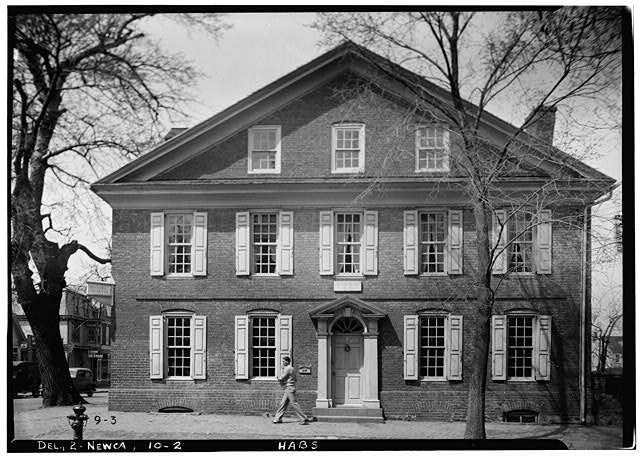
Let’s get one thing straight. A house is not the same as a home. Home is an idea, a social construct, a story we tell ourselves about who we are and who and what we want closest in our midst. There is no place like home because home is not actually a place. A house on the other hand (or an apartment, a trailer, a cabin, a castle, a loft, a yurt) is a physical entity. It may be the flesh and bones of a home, but it can’t capture the soul of that home. The soul is made of cooking smells and scuffmarks on the stairs and pencil lines on a wall recording the heights of growing children. The soul evolves over time. The old saying might go, “You buy a house but you make a home,” but, really, you grow a home. You let it unfold on its own terms. You wait for it. Home is rarely in the mix the day we move into a new house. Sometimes it’s not even there the day we move out. It’s possible we should consider ourselves lucky if we get one real home in a lifetime, the same way we’re supposedly lucky if we get one great love.
“All architecture is shelter,” said the postmodernist Philip Johnson. “All great architecture is the design of space that contains, cuddles, exalts, or stimulates the persons in that space.”
If all architecture, no matter its purpose, is shelter, then architecture intended as shelter must be the ultimate haven. If an airport or a library can cuddle, exalt, and stimulate, a house’s embrace must be at once profoundly intimate and ecstatically transportive, erotic even.
I guess this is where I come clean. I write this as a person for whom houses can have an almost aphrodisiacal quality. I say “almost” because the other charge I get from a beautiful house feels like something close to the divine. A perfect house—and by that I mean a respected house, one that was honorably designed and solidly built and allowed to keep its integrity henceforth—is a tiny cathedral. But a perfect house is also lust made manifest. It can make its visitors delirious with longing. It can send butterflies into their bellies in ways a living, breathing human being rarely can. A house that’s an object of lust says, You want me, but you’ll never have me . It says, You couldn’t have me even if you could afford me. You couldn’t have me even if I didn’t already belong to someone else . And that is because houses, like most objects of lust, lose their perfection the moment we’re granted access. To take possession of a house is to skim the top off of its magic the minute you sign the deed. It is to concede that the house you live in will never be the house you desired so ravenously. It is to accept that the American dream of homeownership is contingent upon letting go of other dreams—for instance, the kind where the rooms appear where there were none before.
Maybe that’s why architects are such sources of fascination, even aspiration. If they want an extra room, they just draw it. If they want a bigger window, a wider archway, a whole new everything, the pencil will make it so. At least that’s the layperson’s fantasy. It’s not surprising that so many fictional heroes in literature and film are architects. The profession, especially when practiced by men, seems to lend itself to a particularly satisfying montage of dreamboat moments. Here he is, artistic and sensitive at his drafting table. Here he is, perched on the steel framework of a construction site high above the earth, hard hat on his head, building plans tucked under his arm in a scroll. Here he is, gazing skyward at his final creation, his face lit by the sun’s refraction off his glass and steel, awestruck by the majesty of it all and awesome in his own right.
Nearly always, these are men on a mission. Theirs is not a vocation but a passion that both guides them and threatens to ruin them. In Ayn Rand’s novel The Fountainhead (perhaps the ne plus ultra of architect fetishization), the grindingly uncompromising Howard Roark winds up laboring at a quarry because he won’t betray his aesthetic principles. In Graham Greene’s A Burnt-Out Case , the internationally renowned but existentially bereft architect hero flees to a leper colony for solace. Hollywood, too, seems to prefer its architects miserable and brooding, not just in the form of adorably widowed dads like Tom Hanks’s character in Sleepless in Seattle and Liam Neeson’s in Love Actually (and wasn’t the distinctly non-brooding architect patriarch of The Brady Bunch technically a widowed dad?) but also adorably commitment-phobic boyfriends and jealous, cuckolded husbands. More often than not, the intensity of their vision has contributed mightily to their demise. Why did Woody Harrelson’s character, a struggling architect, let Robert Redford’s character sleep with his wife for a million dollars in Indecent Proposal ? Because he was deeply in debt from trying to build his dream house.
Well, what better way to go down?
I think part of my problem with “Where is home?” (and the arguably worse “Where are you from?”) is that it denies people their complications. We all have one definitive birthplace (unless we were born at sea or in flight, I suppose), but after that it’s a matter of interpretation. The dwellings in which we are raised do not necessarily constitute “home.” The towns where we grow up do not always feel like hometowns, nor do the places we wind up settling down in as adults. Census data tell us that the average American moves eleven times over a lifetime. For my part, I’m sorry to say I have lived in at least thirty different houses or apartments over the course of my years. Actually, I’m not sorry; each one thrilled me in its own way. But despite those thrills, only a handful felt anything like “home,” and even then, the feeling was the kind that visits you for a moment and then flutters away. As with “happiness,” another abstraction Americans are forever trying to isolate and define, “home” has always felt to me so ephemeral as to almost not be worth talking about. As with happiness, it’s great when you happen upon it, but it can’t be chased.
A house, on the other hand, is eminently chaseable. There’s a reason shopping for a house or an apartment is called hunting. Real estate turns us into predators. We can stalk a house online or from the street. We can obsess over it, fight over it, mentally move into it and start knocking down walls before we’ve even been inside. We can spend Sundays going to open houses as though going to church. We can watch home design programs on television twenty-four hours a day. We can become addicted to Internet real estate listing sites as though the photos and descriptions were a form of pornography—which of course they totally are.
“I wish I had never seen your building,” says Patricia Neal as Dominique Francon, the austere and tortured lover-then-wife of Howard Roark in the film version of The Fountainhead . “It’s the things we admire or want that enslave us.”
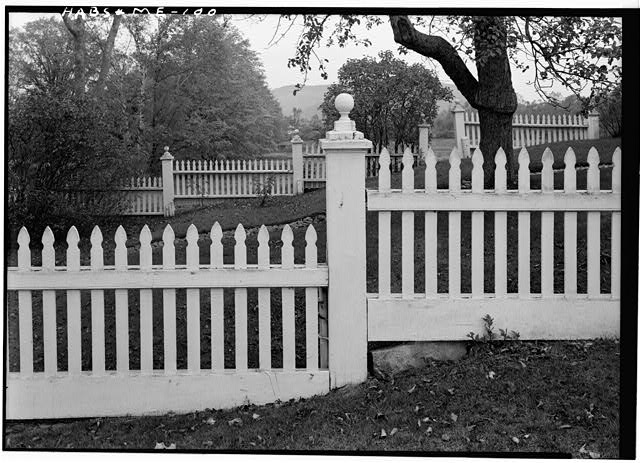
It’s pretty clear that houses, despite being among our greatest sources of protection, are also among our greatest enslavers. You might say that’s because we go into too much debt for them and make them too large and fill them with too much junk. You might say it’s because they’re forever demanding our attention, always threatening to leak or crack and be in the way of a tornado. They are sanctuaries, but they are also impending disasters. And most tyrannically of all, they are mirrors. They are tireless, merciless reflections of our best and worst impulses. Unlike the chaos and unsightliness of the outside world, which can easily be construed as hardly our responsibility, the scene under our roofs is of our own making. The careless sides of ourselves—the clutter, the dust, that kitchen drawer jammed with uncategorizable detritus that plagues every household—are as much a part of us as the curated side. Our houses are not just showplaces but hiding places.
Our homes, on the other hand, are glorious, maddening no-places. They are what we spend our lives searching for or running away from or both. They are the stuff of dreams, the extra rooms that vanish upon waking, the invisible possibilities we tamp down without even knowing it. They are the architecture of the unconscious mind—which is a physically uninhabitable space. Thank goodness there are people out there building houses.
__________________________________
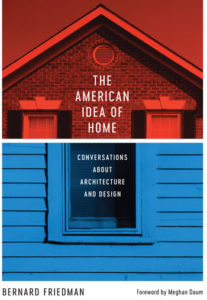
From The American Idea of Home: Conversations about Architecture and Design by Bernard Friedman. Used with permission of University of Texas Press. Foreword copyright 2017 by Meghan Daum.
- Share on Facebook (Opens in new window)
- Click to share on Twitter (Opens in new window)
- Click to share on Google+ (Opens in new window)
- Click to share on LinkedIn (Opens in new window)
- Click to share on Reddit (Opens in new window)
- Click to share on Tumblr (Opens in new window)
- Click to share on Pinterest (Opens in new window)
- Click to share on Pocket (Opens in new window)

Meghan Daum
Previous article, next article, support lit hub..

Join our community of readers.
to the Lithub Daily
Popular posts.

Follow us on Twitter
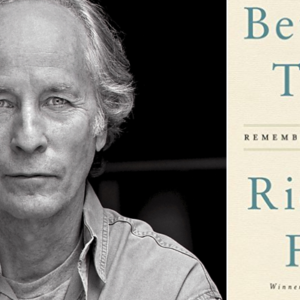
Richard Ford’s Uncanny Memories of His Parents in Love
- RSS - Posts
Literary Hub
Created by Grove Atlantic and Electric Literature
Sign Up For Our Newsletters
How to Pitch Lit Hub
Advertisers: Contact Us
Privacy Policy
Support Lit Hub - Become A Member
Become a Lit Hub Supporting Member : Because Books Matter
For the past decade, Literary Hub has brought you the best of the book world for free—no paywall. But our future relies on you. In return for a donation, you’ll get an ad-free reading experience , exclusive editors’ picks, book giveaways, and our coveted Joan Didion Lit Hub tote bag . Most importantly, you’ll keep independent book coverage alive and thriving on the internet.

Become a member for as low as $5/month
The Psychology of Home: Why Where You Live Means So Much
There's a reason why the first thing we often ask someone when we meet them, right after we learn their name, is "where's home for you?"

My house is a shrine to my homes. There's a triptych of sunsets next to my bedroom door, dusk forever falling over the small Michigan town where I grew up, the beach next to my college dorm and Place de la Concorde in Paris, where I spent a cliché but nonetheless happy semester. And that's only the beginning. Typographic posters of Michigan and Chicago hang above my bed, a photo of taxis zooming around Manhattan sits atop my dresser and a postcard of my hometown's famous water tower is taped to my door. My roommate and I have an entire wall in our kitchen plastered with maps of places we've been, and twin Ferris wheels, one at Navy Pier, one at Place de la Concorde, are stacked on top of one another in my living room.
I considered each of those places my home at one time or another, whether it was for months or years. When laid out all together, the theme to my décor becomes painfully obvious, but why it was more important to me to display the places I've lived rather than pictures of friends, or favorite music or books, all of which are also meaningful, I couldn't initially say.
Susan Clayton, an environmental psychologist at the College of Wooster, says that for many people, their home is part of their self-definition, which is why we do things like decorate our houses and take care of our lawns. These large patches of vegetation serve little real purpose, but they are part of a public face people put on, displaying their home as an extension of themselves. It's hardly rare, though, in our mobile modern society, to accumulate several different homes over the course of a lifetime. So how does that affect our conception of ourselves?
For better or worse, the place where we grew up usually retains an iconic status, Clayton says. But while it's human nature to want to have a place to belong, we also want to be special, and defining yourself as someone who once lived somewhere more interesting than the suburbs of Michigan is one way to do that. "You might choose to identify as a person who used to live somewhere else, because it makes you distinctive," Clayton says. I know full well that living in Paris for three months doesn't make me a Parisian, but that doesn't mean there's not an Eiffel Tower on my shower curtain anyway.
We may use our homes to help distinguish ourselves, but the dominant Western viewpoint is that regardless of location, the individual remains unchanged. It wasn't until I stumbled across the following notion, mentioned in passing in a book about a Hindu pilgrimage by William S. Sax, that I began to question that idea: "People and the places where they reside are engaged in a continuing set of exchanges; they have determinate, mutual effects upon each other because they are part of a single, interactive system."
This is the conception of home held by many South Asians and it fascinated me so much that I set out to write this story. What I learned, in talking with Sax, is that while in the West we may feel sentimental or nostalgic attachment to the places we've lived, in the end we see them as separate from our inner selves. Most Westerners believe that "your psychology, and your consciousness and your subjectivity don't really depend on the place where you live," Sax says. "They come from inside -- from inside your brain, or inside your soul or inside your personality." But for many South Asian communities, a home isn't just where you are, it's who you are.
In the modern Western world, perceptions of home are consistently colored by factors of economy and choice. There's an expectation in our society that you'll grow up, buy a house, get a mortgage, and jump through all the financial hoops that home ownership entails, explains Patrick Devine-Wright, a professor in human geography at the University of Exeter. And it's true that part of why my home feels like mine is because I'm the one paying for it, not my parents, not a college scholarship. "That kind of economic system is predicated on marketing people to live in a different home, or a better home than the one they're in," Devine-Wright says. The endless options can leave us constantly wondering if there isn't some place with better schools, a better neighborhood, more green space, and on and on. We may leave a pretty good thing behind, hoping that the next place will be even more desirable.
In some ways, this mobility has become part of the natural course of a life. The script is a familiar one: you move out of your parents' house, maybe go to college, get a place of your own, get a bigger house when you have kids, then a smaller one when the kids move out. It's not necessarily a bad thing. Even if we did stay in one place, it's unlikely we would ever have the same deep attachment to our environment as those from some South Asian communities do. It just doesn't fit with our culture.
But in spite of everything -- in spite of the mobility, the individualism, and the economy -- on some level we do recognize the importance of place. The first thing we ask someone when we meet them, after their name, is where they are from, or the much more interestingly-phrased "where's home for you?" We ask, not just to place a pushpin for them in our mental map of acquaintances, but because we recognize that the answer tells us something important about them. My answer for "where are you from?" is usually Michigan, but "where's home for you?" is a little harder.
If home is where the heart is, then by its most literal definition, my home is wherever I am. I've always been liberal in my use of the word. If I'm going to visit my parents, I'm going home and if I'm returning to Chicago, I'm also going home. My host parents' apartment in Paris was home while I lived there, as was my college dorm and my aunt's place on the Upper West Side, where I stayed during my internship. And the truth is, the location of your heart, as well as the rest of your body, does affect who you are. The differences may seem trivial (a new subculture means new friends, more open spaces make you want to go outside more), but they can lead to lifestyle changes that are significant.
Memories, too, are cued by the physical environment. When you visit a place you used to live, these cues can cause you to revert back to the person you were when you lived there. The rest of the time, different places are kept largely separated in our minds. The more connections our brain makes to something, the more likely our everyday thoughts are to lead us there. But connections made in one place can be isolated from those made in another, so we may not think as often about things that happened for the few months we lived someplace else. Looking back, many of my homes feel more like places borrowed than places possessed, and while I sometimes sift through mental souvenirs of my time there, in the scope of a lifetime, I was only a tourist.
I can't possibly live everywhere I once labeled home, but I can frame these places on my walls. My decorations can serve as a reminder of the more adventurous person I was in New York, the more carefree person I was in Paris, and the more ambitious person I was in Michigan. I can't be connected with my home in the intense way South Asians are in Sax's book, but neither do I presume my personality to be context-free. No one is ever free from their social or physical environment. And whether or not we are always aware of it, a home is a home because it blurs the line between the self and the surroundings, and challenges the line we try to draw between who we are and where we are.
Image: romakoma/ Shutterstock .
What Is ‘Home’: Personal Idea and Scholar’s Approaches to the Definition of ‘Home’
Introduction, perspectives of scholars, personal definition, concluding thoughts.
The concept of a home has always had multiple levels of complexity as it was approached by different scholars in various ways. Nevertheless, the associations that come with the word ‘home’ are the most comforting and reassuring to most people on this planet. Home brings one’s mind to a place of stability and acceptance and represents a place in which a person feels comfortable and safe. It is where most of the people’s memories are formed, and in many cases, home is a feeling rather than a distinct place. In this paper, a summary of scholar’s approaches to defining ‘home’ will be presented in order to come to a conclusion regarding a personal idea of how the concept should be viewed.
Macy Douglas’s (1993) approach toward defining the concept of home is unique because it combines both positive and potentially negative influences on people. Douglas reflected on the tyranny of the home, in which young people felt trapped and wanted to escape the control and scrutiny of their parents. The combination of nostalgia and resistance to rules that exist in people’s homes is an interesting mixture, which may contribute to the humorous treatment of the topic.
Therefore, it becomes clear from the start that home “cannot be defined by its functions” (1993, p. 61). This means that home does not provide the ultimate care for people and represents a space with very specific characteristics that are complicated to define and describe.
The key intention behind Douglas’s (1993) view is explaining that home is not necessarily a fixed space despite the definition of it presupposing a localizable idea. Home does not always need to be made of brick and mortar; it can be a tent in the middle of a desert, a boat by the shore of a lake, or a wagon in a trailer park. Furthermore, the size of the space does not matter either due to the wide variability of people’s views on how their homes should look. Nevertheless, there is an expected pattern of appearance and reappearance of the furnishings. An example of this is the Japanese rolling away and rolling back their betting in the morning and at night. Thus, there is a certain sense of regularity that gives people a certain level of comfort and confidence.
As the author identifies that home is not a place, she proceeds with exploring the concept from the perspective of serving people as a “memory machine” (Douglas, 1993, p. 62). She writes:
The home makes its time rhythms in response to outside pressures, it is in real time. Response to the memory of severe winters is translated into a capacity for storage, storm windows, and extra blankets; holding the memory of summer droughts, the home responds by shade-giving roofs and water tanks (Douglas, 1993, p. 62).
The capability of home to provide the necessary resources to withstand the pressures of life contributes to the shaping of people’s memories from events that take place. One does not expect to die in a hotel or at a railway station, which is why home brings a sense of utility and comfort that is defined by meeting some of the needs to which the humanity is used.
Since Douglas’s (1993) approach is focused predominantly on the concept of home as a feeling and a sense of belonging, contrasting it with other perspectives is important. For example, Bell Hooks (1990) ascribed more tangible characteristics to a home rather than abstract. The author describes the sense of safety as one reaches the porch of a house, and the feeling of arriving and homecoming brings a sense of completeness. In addition to this, Hooks (1990) discusses sexism as a tool for ensuring that women provide their labor and services to create a home place in which the spirit is nurtured. Despite the fact that sexism is viewed in a negative light, women have played defining roles in shaping the perceptions of the home, both in Black and white communities.
Heidegger (1954) viewed the concept of home from the perspective of building and dwelling. The author mentions that there are real relations between space and location and between a person and space. Spaces in which people found themselves on a daily basis reinforce the ideas of dwelling and building as connections are created on a physical basis. Building produces locations and joins spaces between them, which helps to bring a sense of home through the arrangement of objects that are detrimental to the comfort of people.
This perspective is different from the view of Douglas who suggested that there are little tangible characteristics that define home as a concept. However, it offers a new look on the problem – home is something that can be constructed for meeting the demands and expectations of people, and the building can be later given an abstract meaning that has a physical framework.
Based on the above explorations of the idea of home and what it means to people, one’s own definition of ‘home’ can be given. In the personal view, a home should not be linked solely to tangible things or only to abstract feelings. Instead, an individual should reflect on the combination of physical objects and emotions that these things evoke to create one’s own sense of home. For some people, home is defined by the presence of family – wherever the family is, there is the home. It can be in the middle of the forest on a camping trip with friends and relatives or in a cozy old house where the family is gathered around the table.
For others, home is a collection of objects that bring a person comfort and help relax after a long day of work. These objects range from technologies to old childhood books and hold a special value that others may not understand or see as valuable. Therefore, home is something that each person defines for himself or herself based on what is valuable, comfortable, and meaningful.
To summarize, the idea of ‘home’ is complex and multi-dimensional, which is why there is a range of perspectives regarding its definition. For example, Heidegger (1954) associated construction and dwelling with the term while Hooks (1990) gave it a deeper meaning substantiated by discussions on sexism and racism as Black women were forced to stay at home and serve as keepers of their homes. Whatever the perception of the topic is, it is important to understand that different social issues will influence the shaping of most notions as time goes on. However, ‘home’ should not have a unified definition because of the variety of experiences and contexts influencing its understanding.
Douglas, M. (1993). The idea of a home: A kind of space. In B. Miller Lane (Ed.), Housing and dwelling (pp. 61-68). New York, NY: Routledge.
Heidegger, M. (1954). Building, dwelling, thinking. In B. Miller Lane (Ed.), Housing and dwelling (pp. 50-61). New York, NY: Routledge.
Hooks, B. (1990). Homeplace: A site of resistance. In B. Miller Lane (Ed.), Housing and dwelling (pp. 68-73). New York, NY: Routledge.
Cite this paper
- Chicago (N-B)
- Chicago (A-D)
StudyCorgi. (2021, June 9). What Is ‘Home’: Personal Idea and Scholar’s Approaches to the Definition of ‘Home’. https://studycorgi.com/what-is-home/
"What Is ‘Home’: Personal Idea and Scholar’s Approaches to the Definition of ‘Home’." StudyCorgi , 9 June 2021, studycorgi.com/what-is-home/.
StudyCorgi . (2021) 'What Is ‘Home’: Personal Idea and Scholar’s Approaches to the Definition of ‘Home’'. 9 June.
1. StudyCorgi . "What Is ‘Home’: Personal Idea and Scholar’s Approaches to the Definition of ‘Home’." June 9, 2021. https://studycorgi.com/what-is-home/.
Bibliography
StudyCorgi . "What Is ‘Home’: Personal Idea and Scholar’s Approaches to the Definition of ‘Home’." June 9, 2021. https://studycorgi.com/what-is-home/.
StudyCorgi . 2021. "What Is ‘Home’: Personal Idea and Scholar’s Approaches to the Definition of ‘Home’." June 9, 2021. https://studycorgi.com/what-is-home/.
This paper, “What Is ‘Home’: Personal Idea and Scholar’s Approaches to the Definition of ‘Home’”, was written and voluntary submitted to our free essay database by a straight-A student. Please ensure you properly reference the paper if you're using it to write your assignment.
Before publication, the StudyCorgi editorial team proofread and checked the paper to make sure it meets the highest standards in terms of grammar, punctuation, style, fact accuracy, copyright issues, and inclusive language. Last updated: November 11, 2023 .
If you are the author of this paper and no longer wish to have it published on StudyCorgi, request the removal . Please use the “ Donate your paper ” form to submit an essay.
- Make North America your preferred site edition

What does home mean to you
It’s a question that Habitat homeowners, volunteers and staff are blessed to answer — and hear answers to — almost daily.
A mom in Missouri sees her Habitat home as way to establish stability for her two growing boys . A teenager in Colorado reflects on how hard she’s seen her mother work to help build their new home, how much will and determination she has shown. In Uganda, a family now has a safer, healthier place to live and new vocational opportunities.
Comfort. Security. Favorite family memories. A place of refuge. We asked our readers to share with us the many ways they think of home.
Here are some our favorite responses:
“Home means a future. Once we had a stable home, we could think beyond where we were going to live from week to week, and we could begin to look ahead to where we wanted to go. Home is the base where everything begins.”
“Only three words: safety, security, stability.”
“Home is a place blessed, where you and your family can be secure, have all you need, and share your sadness and happiness. Where you can help each other as a family. It does not matter how big or small. I live in a small room with my two sons, and we share our thoughts.”
“Home means a new chapter in my family’s lives, a fresh new start, safety, security, unity.”
“A home means a stable foundation. When I was a little kid, my parents never had their own place. With five kids, my dad worked seven days a week, 12 hours a day; mom worked off and on. We went from one place to another. I can remember one place we lived in had no bathroom, the windows were missing, the walls no better — there were holes in them. Sixteen years ago I started helping Habitat and will always help people in need. God bless and thanks. P.S. Dad, you’re the best, will always remember you!”
Home is the base where everything begins.
“Since 2007, I’ve built four homes with Habitat for Humanity families. The common thread binding each family was that each home became these families’ base for everything: faith, hope, family, school, fellowship, even future struggles and conquests. Home gave these four great families a relief from the stresses of unsuitable or dangerous living conditions so they could focus on what’s next, not just what’s now.”
“I think that home is simply wherever you’re surrounded by people who love you.”
“Home is a safe haven and a comfort zone. A place to live with our families and pets and enjoy with friends. A place to build memories as well as a way to build future wealth. A place where we can truly just be ourselves. And whether our houses are big, small, fancy or modest, they are our shelters and our sanctuaries.”
Related stories

A home transforms a family's future
Now a Rhodes Scholar, Jacob shares how his proudest moment was the night that his family slept in their new Habitat home.

What is poverty?
Learn how poverty is defined in the U.S. and around the world, and how the reach and impact of poverty affects people.

Having a home empowers a Habitat homeowner
Heidi, a former teacher and youth advocate, shares her journey through the Habitat homeownership process and the sense of community it brings.
- 5 Best Tips to Prepare for NAATI CCL Test in Australia
- Mistakes to Avoid During NAATI CCL Test
- How to Improve Listening Score before the IELTS Exam?
- 4 Tips and Examples for IELTS Essay Writing
- 5 IELTS Reading Tips

Example essay on topic What Does Home Mean to You?
Everyone may have a different definition of a home. For some, it might be just a place surrounded by four walls and a roof while for others; it may be the whole reason for their living and surviving. Regardless of the space and accessories you have in your home, it provides you with safety, security, love, affection, and unity which are really hard to find outside your home in the entire world.
It would be fair to say that most of the people have their hearts in their homes. And it is also natural for them to feel homesick whenever they are not around their family members and closed ones. In my opinion, home is where you learn to build relationships on trust, make compromises & sacrifices, and develop progressive thoughts and behaviors. That’s where the learning phase starts from, for which the responsibility lies on the shoulders of your parents. So, it is important for the parents to be careful and wise enough to fulfill such a responsibility.
Due to the tragic events which can happen all around, some may differ this point of view that home provides all of us with safety and security. But for most of the fortunate people, this would be true and legit because it is the place where you would have the liberty to do and say everything you feel like without fearing anyone. For me, my home and family members have always played a major role in building up my self-esteem, confidence, and self-respect and I would always be thankful to them for this favor.
Moreover, I got a chance to make beautiful memories with my parents and siblings in my home. So, whenever I go away from my home even for a few days, I start feeling homesick and it becomes really hard for me to survive. But coming back to the place I love and adore is the most wonderful and amazing feeling one can ever have. I would really like to share the rest of my life in my home with my loved ones peacefully.
Most of the people would relate to this that home should be the priority in your life. You need to keep your family members and home on every page of your book to make sure that you spend ample quality time with them. Moreover, there is nothing else which would have more healing power than a home or family have. So, home is not just a shelter for you where you spend all the happy moments of your life, but it also gives you comfort and relief when you are sad and there is grief all around.
In this cold-hearted and cruel world, empathy and sensitivity have become very rare. But home is the place where you get a chance to develop empathy within you unknowingly. So in short, home is that beautiful place where you get trained to make the world a better place to live for the whole society and people.
- Example essay on the Importance of Hygienic Kitchen
- Sample essay on a topic My Sweet Home
You May Also Like

Sample Essay On Freedom of Speech

Essay on Cancer

Sample essay on my favorite City Rome
- Learning Center
The Pros and Cons of Renting vs. Buying a House
Not sure if you should buy a home in this market? These 12 pros and cons can help you decide.

The question of “should you buy or rent” is a lot tougher to answer now than it was only four years ago. U.S. home prices have climbed along with interest rates, while rising rents have made it harder for many renters to save for a down payment.
Those dynamics have changed some of the ways you may be thinking about buying versus renting.
Before the pandemic, the decision usually came down to whether you could afford a down payment since mortgage payments on a typical home — even including taxes and insurance — were hundreds of dollars cheaper than rents.
Now, rents and mortgage payments are much closer. Even when putting 20% down on a home purchase, rents were cheaper than mortgages in nearly three out of five (29/50) major metros at the start of 2024. And it takes a renter four more years to save for a down payment now than it did pre-pandemic.
So on a monthly basis, you’re likely to pay less to rent in most metro areas — even for a comparable home. But that’s only part of the picture.
There are benefits to either option, and everyone will come to their decision with different priorities and values. It all depends on what you expect from the market, whether you see your home primarily as an investment, the length of time you expect to live in your home, and the lifestyle you’re seeking.
Here are some pros to each option to help you weigh your choices.
Pros to buying a home now
Even in today’s housing market, buying a home could be a smart move. Here are six reasons why buying a house could benefit you more than renting:
You may be able to build equity
“Building equity ” means that you increase your financial stake in the home over time. You can do that in two ways: 1) By paying down your mortgage over time, and 2) by buying a home that eventually becomes worth more than you bought it for.
The difference between what you can sell your home for and what you owe on your mortgage is your equity. So if you could sell your home for $350,000 and you owe $200,000 on your mortgage, you would have $150,000 in home equity, including the amount you put toward the down payment.
While there are no guarantees that any given home will appreciate in value, homes typically tend to become more valuable over time. What makes ownership especially attractive in those cases is that you earn appreciation on the entire value of the home, not just the amount you put down toward the purchase.
Affordability Calculator
What’s changed for buyers over the past few years is the amount of time they would have to live in their homes before equity growth helps buying become ultimately cheaper than renting.
For example, if you bought a $350,000 home with 20% down, and home values really struggled to take off this year, you would have to live in that home for around seven years before the net cost of buying and maintaining the home equaled the net cost of renting during that same period. If mortgage rates fall more and home values start growing again, you could break even in a little over four years. Both examples assume you’d be paying $2,000 a month in rent and earning a 6% return by investing the money you would otherwise have put toward the down payment. (“Net costs” means the usual costs, but offset by the homeowner’s growing equity or the renter’s investment account balance.)
“The longer mortgage rates are elevated, the more home buying is for a longer run decision,’’ says Zillow® Chief Economist Skylar Olsen.
Keep in mind that the average homeowner stays in their home 13 years, so if you’re planning to stay in your home past the breakeven point, it could make more sense to buy. The opposite is true if you’re planning to move sooner. This Rent vs. Buy Calculator can help guide your decision-making by showing you how different scenarios might pencil out. And our Affordability Calculator can show you how much you can afford to spend on a home, given your income, assets and debts.
Keep in mind that most experts say that shelter is considered affordable if the monthly outlay doesn’t consume more than 30% of your monthly income.
Every mortgage payment can help you save
When you pay your mortgage each month, some of it goes toward interest on the loan and some goes toward principal or paying down the amount you owe. Over time, the share that goes toward principal gets larger and larger, increasing your share of ownership in the home as time passes.
Those principal payments are considered “forced savings,’’ since they build equity while you’re putting a roof over your head — something you’d have to pay for anyway.
“If you don’t think you’ll be reliably investing in the stock market and making a decent return on it, paying a mortgage can simplify your savings plan,’’ says Olsen.
You’re buying a lifestyle that could be hard to replicate if you’re renting
Buying a home can give you access to a larger variety of neighborhoods, home styles and amenities, and allow you to tailor your home to your liking, whether it’s through home improvements or landscaping. If you’ve ever searched for a single family rental, you know they can be hard to come by in your chosen neighborhood.
The higher demand for single family rentals translates to higher rents for those properties. Rent growth for single-family homes has been stronger than for multi-family homes, a trend that’s likely to continue according to Zillow’s 2024 housing predictions . Single-family rentals are 4.8% more expensive than a year earlier, while rents for multi-family are up 2.55% year over year.
“It’s important to remember: we find intrinsic value in ownership itself — in controlling the path of our lives and writing our own stories,’’ says Olsen. “Buying is a part of that.”
Your mortgage payments will remain relatively stable for as long as you own your home
A fixed-rate mortgage has a monthly payment that stays the same for the life of the loan. Taxes and homeowners insurance, which your lender will typically collect every month, are likely to increase, but the mortgage portion would remain unchanged until you sell or pay off the mortgage.
For that reason, real estate is often considered a hedge against inflation because it offers people a way to lock in the cost of shelter, which is a major part of their monthly budget.
If mortgage rates drop, homeowners can lower their monthly mortgage costs by refinancing . The vast majority of renters have no such control over their rent. Since the pandemic began in 2020, rents have surged more than 29%, and they continue to trend upward, according to Zillow® research .
Olsen says that “even with below-average rent growth, rents could easily double over the next 30 years.”

You could get tax benefits
Homeowners who itemize deductions on their tax returns can write off the interest they pay on mortgages of up to $750,000. Owning a home may entitle you to other tax breaks as well.
Even more impactful to the bottom line, homeowners benefit when they sell, too: A married couple can avoid paying taxes on up to $500,000 in capital gains when they sell their home, a tax break that is not possible when you sell stocks or other capital investments. The capital gains deduction for a single homeowner is up to $250,000.
You may not have to make a fast decision
Depending on your market, your price tier and the season, you could have more time to look for what you want.
After one of the most challenging years on record for buyers in 2023, sellers are cutting prices and homes are taking slightly longer to sell. Zillow® research shows that 22.6% of for-sale listings had price cuts in November, and homes that sold that month went under contract in only 21 days. That’s a day faster than a year earlier, but more than two weeks faster than homes normally sold for in the fall pre-pandemic.
You may be able to use your home to earn rental income.
If you buy a home and later decide to move out or you have a spare room or accessory dwelling unit , you may be able to rent to someone else and use the rental income you receive to help you cover your mortgage payment and other costs.
“My advice to a first-time buyer is always that your first home is not your forever home,” Becky Garcia, team lead of The Garcia Group at eXp Realty in Phoenix, says, adding that potential buyers should look at their first purchase as a three-to-five-year home that will help build a down payment towards a dream home. “I tell them to look at it as a strategy,” she added. “My favorite purchase for a first time buyer is a duplex . They can live in one unit, rent out the other and have their tenant pay a large portion of their mortgage.”
It’s also possible to buy a home or vacation getaway and use it primarily as an investment property before you buy a principal residence for yourself.
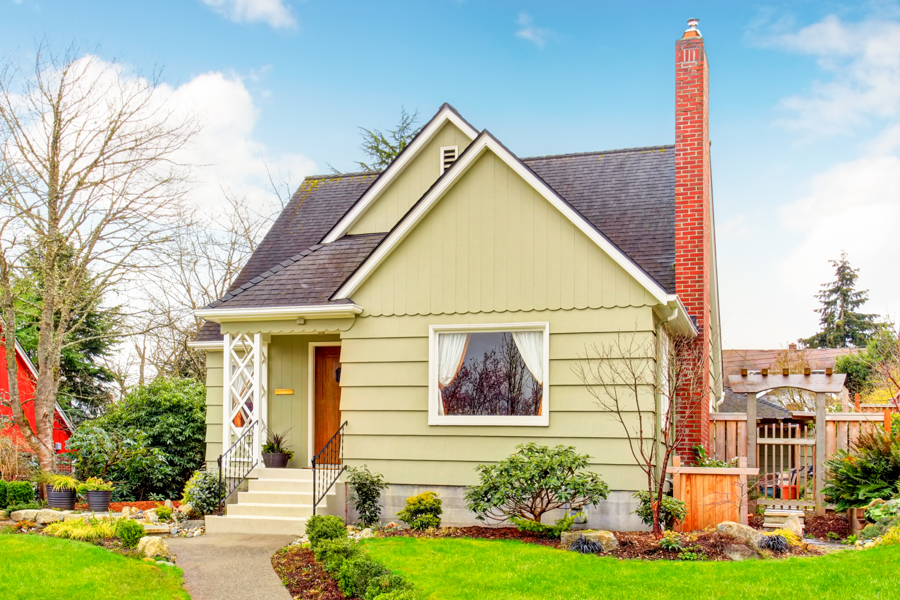
Reasons you may consider renting for now
With all the reasons why you should consider buying a home, there are also some good reasons to keep renting. Here are six pros to renting a home vs buying that may be concerns for you:
The cost of renting is generally less expensive than buying the same quality of home
Rent is less expensive than a mortgage on a monthly basis in most places, even when comparing similar homes, according to Olsen.
The typical U.S. home in November 2023 was worth $347,415, and the typical mortgage payment for a buyer who put 20% down was $1,925. That amount was 9% higher than the previous November.
The typical U.S. rent in November 2023 was $1,982 — an increase of 3.3% from a year earlier, according to the Zillow Observed Rent Index (ZORI), but the trend shows rents flattening as more multi-family homes come on the market.
Zillow’s rent vs. buy calculator can help you estimate how many years it would take for your hypothetical cost of buying to equal your hypothetical cost of renting in your market. Generally, the longer you stay in your home, the more the balance swings toward owning.
Renters usually have more freedom to move
Renting comes with fewer strings attached. Whether it’s a different neighborhood or unit, you can usually move more easily to adapt your current lifestyle and needs, or to try out a different city altogether.
There’s usually no or low maintenance costs
“Homeownership can come with unexpected headaches — and sometimes expensive ones,’’ says Olsen. “Renters do not need to worry about the cost of maintenance or upgrades (outside of those built into next year’s lease), and in many cases don’t even need to mow the lawn.”
Data based on millions of home projects completed across the country show that home maintenance and upkeep runs about $6,413 annually, according to Thumbtack , a home management platform that enables people to fix, maintain and improve their homes.
You may need to make fewer financial compromises
Coming up with a down payment to buy a home requires building up significant savings, and higher home prices and interest rates have made home buying an expensive proposition that can require financial sacrifices.
Buying could require you to make sacrifices that you aren’t ready or able to make, such as settling for one less bedroom when you’re expecting a new member of your family or cutting back on entertainment or vacations.
The upfront costs are likely to be lower
“ There is a low, but not zero, financial barrier to entry for renting,’’ says Olsen, so you can invest what you would have spent on a down payment into the stock market or other type of investment.
You won’t have to worry about home values declining
Homes generally appreciate over time, but they can also lose value. Nationally, home values are expected to flatten this year, but in some markets home values dropped.
While this can be good news for affordability if you’re planning to buy right now, the flip side is that you’ll need to consider likely home value trends over the course of ownership.
For example, if home prices take a dip, and you made a small or zero down payment and haven't owned your home long enough to build much equity, this could cause you to be underwater or “ upside down ” if you need to sell. While there are options for underwater borrowers, this could be a reason to keep renting for now and save for a higher down payment.

You don't have to pay property tax and other costs
Aside from maintenance, other costs of ownership include property tax, homeowners insurance, and sometimes homeowner association fees.
Olsen says the financial decision to rent or buy is based on a long timeline, and is anchored on someone’s expectations. Depending on future home value appreciation and how effectively you invest savings if choosing to rent, you could break even from buying in as few as five years or as many as 18 or more. Where a household falls within that range depends on the cost of the home they’re considering purchasing or renting, how quickly rents and home values grow, the potential rate of return on stocks or other investments and whether mortgage rates fall enough to make refinancing a good option.
If you’re curious about how much rent you can afford, check out this rent affordability calculator . And this calculator can show you how much you can afford to spend on a home, given your income, assets and debts.
The bottom line: Deciding when to buy a home is a personal choice. There's no one "right" time for everyone. Only you can decide if now is the right time for you.
Need more help understanding when to buy a house? Try our decision tree .

Susan Kelleher
A local agent can help you stay competitive on a budget.
They’ll help you get an edge without stretching your finances.
Related Articles
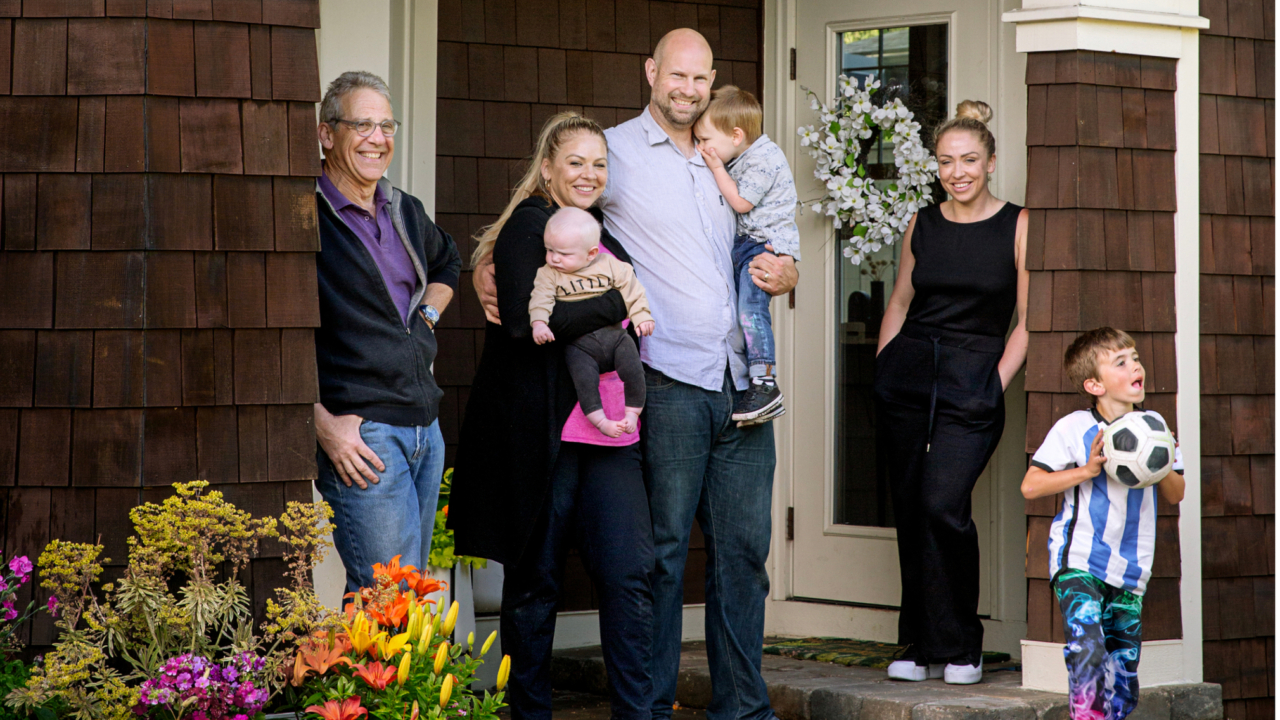
They Didn't Plan To Have A Multigenerational Household. Here's What They Learned When They Embraced It.

How to Hire a Buyer’s Real Estate Agent
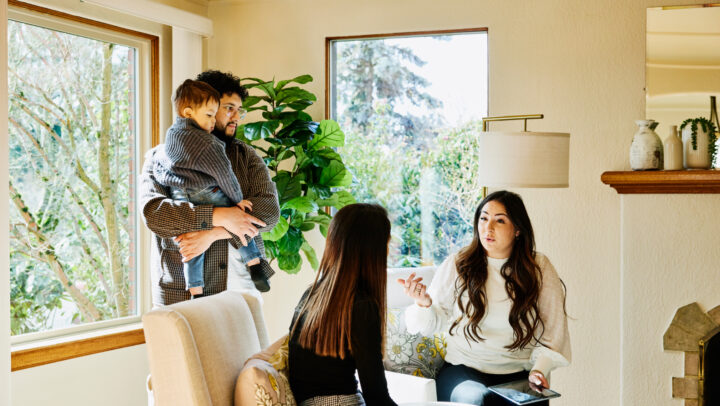
What to Expect in Your First Conversation With an Agent

Essay: What We Can Learn From America’s First Diplomat
Create an FP account to save articles to read later.
ALREADY AN FP SUBSCRIBER? LOGIN
Downloadable PDFs are a benefit of an FP subscription.
Subscribe Now
World Brief
- Editors’ Picks
- Africa Brief
China Brief
- Latin America Brief
South Asia Brief
Situation report.
- Flash Points
- War in Ukraine
- Israel and Hamas
- U.S.-China competition
- U.S. election 2024
- Biden's foreign policy
- Trade and economics
- Artificial intelligence
- Asia & the Pacific
- Middle East & Africa
How Platon Photographs Power
Ones and tooze, foreign policy live.

Summer 2024 Issue
Print Archive
FP Analytics
- In-depth Special Reports
- Issue Briefs
- Power Maps and Interactive Microsites
- FP Simulations & PeaceGames
- Graphics Database
FP at NATO’s 75th Summit
Nato in a new era, fp security forum, catalysts for change, fp @ unga79.
By submitting your email, you agree to the Privacy Policy and Terms of Use and to receive email correspondence from us. You may opt out at any time.
Your guide to the most important world stories of the day
Essential analysis of the stories shaping geopolitics on the continent
The latest news, analysis, and data from the country each week
Weekly update on what’s driving U.S. national security policy
Evening roundup with our editors’ favorite stories of the day
One-stop digest of politics, economics, and culture
Weekly update on developments in India and its neighbors
A curated selection of our very best long reads
What We Can Learn From America’s First Diplomat
Benjamin franklin leveraged a soft touch—and humor—to further u.s. goals..
- Foreign & Public Diplomacy
- United States
- North America
Benjamin Franklin was America’s first diplomat and undoubtedly its best. Yes, there have been other stalwarts, such as George Kennan and Richard Holbrooke (a former editor of this magazine). But they would never have excelled without Franklin—indeed, without his unique brand of statecraft, there would be no United States.
This article is adapted from Ben & Me: In Search of a Founder’s Formula for a Long and Useful Life by Eric Weiner (Avid Reader Press / Simon & Schuster, 336 pp., $29.99, June 2024).
Franklin is perhaps best known for securing French support for the American cause during the Revolutionary War, but he accomplished much more than that. He was a printer, publisher, scientist, inventor, legislator, memoirist, and postmaster. Notably, he was the only person who signed all four documents leading to the founding of the United States.
Franklin the Diplomat borrowed from Franklin the Scientist. His major contribution to the field of electricity was the discovery of the principle of conservation of charge. What scientists had previously believed were two distinct types of electricity, Franklin proved was actually one. On the diplomatic front, he saw unity everywhere and, where it didn’t exist, aimed to create it.
Today’s U.S. envoys and policymakers would be wise to revisit Franklin and his diplomatic style. Technologies advance and alliances shift, but the fundamentals of diplomacy and human nature remain the same. As Washington faces mounting foreign-policy challenges, from brokering peace in Gaza to managing its knotty relationship with China, there is still much to learn from America’s first diplomat.
Franklin’s greatest diplomatic magic trick came during the 1782-83 peace negotiations with Britain that ended the Revolutionary War. He projected parallel realities, one for Britain and the other for France, all while pursuing U.S. interests. To the British, he hinted that the United States might be willing to desert its ally, France, and make a separate peace with London; to the French, he insisted their alliance was indestructible. It worked. The United States acquired more land—as far west as the Mississippi—than Franklin or his fellow negotiators imagined possible.
This moment of success displays Franklin’s great diplomatic dexterity. He refused to be put in a box. He was both realist and idealist, bold and cautious. He always managed to locate the intersection of America’s interests and those of its allies—and even its enemies. “Love your enemies,” he once said, “for they tell you your faults.” Although he valued alliances, he always kept his options open. He didn’t let the U.S. alliance with France prevent him from vigorously pursuing U.S. territorial aims and reconciliation with Britain.
Franklin leveraged even the puniest of assets. He worked with what he had. In France, that wasn’t much. There was no U.S. Embassy or staff awaiting his arrival in 1776. He had to invent the U.S. Foreign Service from scratch, and in secrecy, since the French had yet to sign an alliance with the young United States. The United States did not yet have a national emblem, so he sent official documents with his personal seal. The embassy had no printing press, so he set one up, churning out U.S. passports, legal documents, and invitations to embassy receptions.
Although Franklin may have had little in the way of material resources, he had a large diplomatic toolkit at his disposal, skills acquired over a lifetime spent navigating fraught relationships. Franklin jettisoned definitive words, such as “certainly” and “undoubtedly,” and instead deployed more measured phrases, such as “I conceive, I apprehend, or I imagine a thing to be so or so.” Sometimes he leaned on the power of the long, uncomfortable silence to make a point. Franklin would no doubt chafe at the bombast of a Benjamin Netanyahu or a Donald Trump.
Franklin always knew his audience and could slip in and out of roles fluently. In London, he played the part of the English gentleman. In France, donning a marten fur cap on his wigless head, he adopted the role of the backwoodsman philosopher, dispensing witticisms in fractured French.
Crucially, Franklin had the ultimate soft power at his disposal: fame. The French adored Franklin. His image was everywhere. As he told his sister Jane, “My face is now almost as well known as that of the moon.” This notoriety delighted Franklin but irked his fellow U.S. diplomats. John Adams moaned about “a scene of continual dissipation” that permeated Franklin’s daily routine: late nights spent drinking Madeira, playing chess, and flirting unabashedly with his female admirers. Adams failed to grasp that Franklin’s social and diplomatic lives were of a piece. He was meeting the French on their own terms. What his prudish colleagues saw as indulgence and depravity, Franklin saw as gentle persuasion.
The United States, now a superpower, has largely lost this soft touch. The decision in 1999 to shutter the U.S. Information Agency, which was devoted to carrying out U.S. public diplomacy, would surely befuddle Franklin. One of the main aims of U.S. foreign policy, he thought, was winning hearts and minds abroad. Why jettison the one agency devoted to dispersing information that was essential to that task?
Franklin’s diplomatic arsenal also included large caches of empathy and humility. When posted to France, he saw the world through French eyes, understood their desires and fears. For instance, he timed his requests for aid not to the U.S. timetable but to that of the French budgetary system. Franklin, observed one historian, “had the common sense not to annoy the French.” Yet today, in some quarters at least, annoying U.S. allies is seen as a badge of honor. Former U.S. President Donald Trump, for instance, has often chided some European NATO members for not contributing enough to the organization, while the Biden administration famously snubbed France by signing a backroom deal with Australia and the United Kingdom to equip Australia with nuclear-powered submarines.
Franklin reminded the French that a huge new market awaited them in North America if the Continental Army proved victorious, but he knew self-interest alone was rarely enough to sway people. He made other, more high-minded appeals, best articulated in a letter to his friend Samuel Cooper. “‘Tis a common observation here, that our cause is the cause of all mankind ; and that we are fighting for their liberty in defending our own.”
By tactfully soliciting French support, Franklin deployed a quirk of human nature now known as the Ben Franklin Effect. Simply put: We don’t like people who are nice to us; we like people to whom we are nice. It sounds counterintuitive, but recent studies confirm that a surefire way to endear yourself to someone is to ask for a favor.
Washington would be wise to deploy the Ben Franklin Effect in its foreign policy today. Instead of lording over less developed nations, why not ask them to do a favor, however small, for the world’s most powerful nation? Why not ask Kazakhstan, for instance, to use whatever leverage it has with Russian President Vladimir Putin to press for the release of U.S. prisoners in Russia?
Gratitude also played a role in Franklin’s worldview. Unlike his fellow American envoys, Franklin thanked the French every chance he had. “Such an expression of gratitude is not only our duty but our interest,” he said. Franklin’s philosophy of gratitude paid off; even after the war, France continued to loan large sums to the United States.
Perhaps the most potent tool in Franklin’s diplomatic kit was humor. Lord Stormont, Britain’s ambassador to France, frequently schemed to undermine Franklin’s reputation and cast doubts on the prowess of the U.S. army. At one point, rumors circulated that six battalions of the Continental Army had surrendered. Asked if these reports were true, Franklin replied, “No, it is only a Stormont.” The gibe stuck, and soon a new word reverberated across French high society: stormonter , “to tell a falsehood.”
Franklin would encourage today’s U.S. diplomats to add strategic humor to their arsenal. Humor, of course, won’t end the wars in Ukraine and Gaza. Nor will it magically improve U.S. relations with China. But it represents the sort of personal diplomacy that, employed wisely, can open doors and change minds.
Books are independently selected by FP editors. FP earns an affiliate commission on anything purchased through links to Amazon.com on this page.
Eric Weiner is a former international correspondent for NPR and the author of five books, including his most recent, Ben & Me: In Search of a Founder’s Formula for a Long and Useful Life . Twitter: @Eric_Weiner
Join the Conversation
Commenting on this and other recent articles is just one benefit of a Foreign Policy subscription.
Already a subscriber? Log In .
Subscribe Subscribe
View Comments
Join the conversation on this and other recent Foreign Policy articles when you subscribe now.
Not your account? Log out
Please follow our comment guidelines , stay on topic, and be civil, courteous, and respectful of others’ beliefs.
Change your username:
I agree to abide by FP’s comment guidelines . (Required)
Confirm your username to get started.
The default username below has been generated using the first name and last initial on your FP subscriber account. Usernames may be updated at any time and must not contain inappropriate or offensive language.
How America’s Founding Fathers Missed a Chance to Abolish Slavery
They swept the issue under the rug, and even Thomas Jefferson realized that civil war was inevitable before he died on July 4, 1826. But history could have taken a different direction.
Is This a Revolution? Or Are People Just Very Ticked Off?
In a new book, Fareed Zakaria explores how much the times are a-changin’. At risk, he says, is the entire global system.
Sign up for Editors' Picks
A curated selection of fp’s must-read stories..
You’re on the list! More ways to stay updated on global news:
Southeast Asia in BRICS Is Good for the Global Order
Ukraine lays its tracks to europe, donald sutherland and the soldiers who resisted vietnam, u.k. conservative party expected to lose snap elections, editors’ picks.
- 1 Trump’s Return Would Transform Europe
- 2 Southeast Asia in BRICS Is Good for the Global Order
- 3 Trump’s Plan to Weaken the Dollar Makes No Sense
- 4 What a U.K. Labour Win Means for the Global Left
BRICS Southeast Asia Expansion: Malaysia and Thailand Joining Affirms the Global South’s Strategy
Amid war with russia, ukraine is expanding its railways in europe, donald sutherland and the gis who resisted vietnam, what benjamin franklin can teach us about foreign policy, u.k. snap parliamentary elections: sunak's conservative party expects major losses, more from foreign policy, yes, biden flopped. but let’s not overreact. .
The United States is in a very bad place. Just not as bad as people think.
Against China, the United States Must Play to Win
Washington’s competition with Beijing should not be about managing threats—but weakening and ultimately defeating the Chinese Communist Party regime.
Key Foreign-Policy Moments From the Trump-Biden Debate
The two candidates clashed over Russia’s war in Ukraine, the Israel-Hamas war, immigration, and America’s global image.
NATO’s New Leader Was Planning This the Whole Time
Mark Rutte, a workaholic obsessed with routine, is about to take over the West’s military alliance.
What a U.K. Labour Win Means for the Global Left
Trump’s plan to weaken the dollar makes no sense, trump’s return would transform europe, southeast asia wants u.s.-china conflict to stay lukewarm.
Sign up for World Brief
FP’s flagship evening newsletter guiding you through the most important world stories of the day, written by Alexandra Sharp . Delivered weekdays.
Full-Length SAT Suite Practice Tests
Find full-length practice tests on Bluebook™ as well as downloadable paper (nonadaptive) practice tests to help you prepare for the SAT, PSAT/NMSQT, PSAT 10, and PSAT 8/9.
Home — Essay Samples — Life — Hometown — What My Home Means to Me
What My Home Means to Me
- Categories: Hometown House
About this sample

Words: 827 |
Published: Apr 8, 2022
Words: 827 | Pages: 2 | 5 min read

Cite this Essay
Let us write you an essay from scratch
- 450+ experts on 30 subjects ready to help
- Custom essay delivered in as few as 3 hours
Get high-quality help

Dr. Heisenberg
Verified writer
- Expert in: Life

+ 120 experts online
By clicking “Check Writers’ Offers”, you agree to our terms of service and privacy policy . We’ll occasionally send you promo and account related email
No need to pay just yet!
Related Essays
4 pages / 1798 words
2 pages / 761 words
3 pages / 1579 words
3 pages / 1257 words
Remember! This is just a sample.
You can get your custom paper by one of our expert writers.
121 writers online
Still can’t find what you need?
Browse our vast selection of original essay samples, each expertly formatted and styled
Related Essays on Hometown
The Oxford English Dictionary. (2020). Home. Retrieved from
Many ask, "what does home mean to you?" For me, home is not just a place…it’s a feeling. “What I love most about my home is who I share it with.” “There is nothing more important than a good, safe, secure home.” “Home is [...]
Moving to a new home is often a transformative experience, filled with excitement, anticipation, and a hint of anxiety. My new home is not just a structure of bricks and mortar; it is a sanctuary that embodies my aspirations, my [...]
The concept of "home" extends far beyond the physical structure where one resides. It is a multifaceted symbol that encompasses a variety of meanings, from a shelter providing safety and comfort to a profound emblem of personal [...]
Philosophers such as Aristotle and Plato pointed out that education is central to the moral fulfilment of individuals and the well-being of the society in which they live. Regarding this idea, I returned to Korea wanting to [...]
I grew up in a town that holds barely six thousand people. While I enjoyed growing up in Hope, British Columbia, it was far from easy. People who struggle with having no chance at a private life, having to make fun out of [...]
Related Topics
By clicking “Send”, you agree to our Terms of service and Privacy statement . We will occasionally send you account related emails.
Where do you want us to send this sample?
By clicking “Continue”, you agree to our terms of service and privacy policy.
Be careful. This essay is not unique
This essay was donated by a student and is likely to have been used and submitted before
Download this Sample
Free samples may contain mistakes and not unique parts
Sorry, we could not paraphrase this essay. Our professional writers can rewrite it and get you a unique paper.
Please check your inbox.
We can write you a custom essay that will follow your exact instructions and meet the deadlines. Let's fix your grades together!
Get Your Personalized Essay in 3 Hours or Less!
We use cookies to personalyze your web-site experience. By continuing we’ll assume you board with our cookie policy .
- Instructions Followed To The Letter
- Deadlines Met At Every Stage
- Unique And Plagiarism Free
'Britain sees red' - What the newspaper front pages say after Labour tipped for majority
Sky News takes a look at the stories making the headlines on Friday's national newspaper front pages.
Friday 5 July 2024 01:53, UK
Please use Chrome browser for a more accessible video player
"Keir we go," exclaims the Daily Mirror, which as usual had endorsed Labour in the election.
It hailed the party's "thumping landslide victory" underneath a picture of Starmer and his wife, Victoria.
Tories wiped out amid a Labour landslide, says The Daily Telegraph.
The Daily Star says the Tories were "spanked" as Labour heads for a huge majority.
The paper poked fun at the Conservatives' record, showing what it said were the "good bits" from their 14 years in power...
The Times also leads on the exit poll, discussing Starmer's "Blair-style majority" and the growth of Reform UK.
It's a "crushing blow" for the Conservatives in an "election wipeout", the Daily Express reports.
Turning to the sizeable vote numbers for Reform UK, the paper described Nigel Farage's party's performance as a "stunning breakthrough".
"Landslide!" says the Independent. It describes the Tories' performance as their "worst-ever drubbing".
Labour is set for a "historic landslide" according to the "dramatic" exit poll, the Daily Mail says.
The paper reports that the Conservatives are set to "escape a total wipeout".
A picture of Sir Keir Starmer and his wife, Victoria, is on the front page of The Guardian, along with the results of the exit poll.
'Labour landslide' is the headline on the front of the i paper, which calls the exit poll "a historic triumph" for Sir Keir Starmer's party.
The Sun leads with news of Labour's likely landslide, reporting that the party are heading for a 170-seat majority with Reform UK on the rise.
Be the first to get Breaking News
Install the Sky News app for free

- Share full article
Advertisement
Supported by
Guest Essay
A Year on Ozempic Taught Me We’re Thinking About Obesity All Wrong

By Johann Hari
Mr. Hari is a British journalist and the author of “Magic Pill: The Extraordinary Benefits — and Disturbing Risks — of the New Weight Loss Drugs.”
Ever since I was a teenager, I have dreamed of shedding a lot of weight. So when I shrank from 203 pounds to 161 in a year, I was baffled by my feelings. I was taking Ozempic, and I was haunted by the sense that I was cheating and doing something immoral.
I’m not the only one. In the United States (where I now split my time), over 70 percent of people are overweight or obese, and according to one poll, 47 percent of respondents said they were willing to pay to take the new weight-loss drugs. It’s not hard to see why. They cause users to lose an average of 10 to 20 percent of their body weight, and clinical trials suggest that the next generation of drugs (probably available soon) leads to a 24 percent loss, on average. Yet as more and more people take drugs like Ozempic, Wegovy and Mounjaro, we get more confused as a culture, bombarding anyone in the public eye who takes them with brutal shaming.
This is happening because we are trapped in a set of old stories about what obesity is and the morally acceptable ways to overcome it. But the fact that so many of us are turning to the new weight-loss drugs can be an opportunity to find a way out of that trap of shame and stigma — and to a more truthful story.
In my lifetime, obesity has exploded, from being rare to almost being the norm. I was born in 1979, and by the time I was 21, obesity rates in the United States had more than doubled . They have skyrocketed since. The obvious question is, why? And how do these new weight-loss drugs work? The answer to both lies in one word: satiety. It’s a concept that we don’t use much in everyday life but that we’ve all experienced at some point. It describes the sensation of having had enough and not wanting any more.
The primary reason we have gained weight at a pace unprecedented in human history is that our diets have radically changed in ways that have deeply undermined our ability to feel sated. My father grew up in a village in the Swiss mountains, where he ate fresh, whole foods that had been cooked from scratch and prepared on the day they were eaten. But in the 30 years between his childhood and mine, in the suburbs of London, the nature of food transformed across the Western world. He was horrified to see that almost everything I ate was reheated and heavily processed. The evidence is clear that the kind of food my father grew up eating quickly makes you feel full. But the kind of food I grew up eating, much of which is made in factories, often with artificial chemicals, left me feeling empty and as if I had a hole in my stomach. In a recent study of what American children eat, ultraprocessed food was found to make up 67 percent of their daily diet. This kind of food makes you want to eat more and more. Satiety comes late, if at all.
One scientific experiment — which I have nicknamed Cheesecake Park — seemed to me to crystallize this effect. Paul Kenny, a neuroscientist at Mount Sinai Hospital in New York, grew up in Ireland. After he moved in 2000 to the United States, when he was in his 20s, he gained 30 pounds in two years. He began to wonder if the American diet has some kind of strange effect on our brains and our cravings, so he designed an experiment to test it. He and his colleague Paul Johnson raised a group of rats in a cage and gave them an abundant supply of healthy, balanced rat chow made out of the kind of food rats had been eating for a very long time. The rats would eat it when they were hungry, and then they seemed to feel sated and stopped. They did not become fat.
We are having trouble retrieving the article content.
Please enable JavaScript in your browser settings.
Thank you for your patience while we verify access. If you are in Reader mode please exit and log into your Times account, or subscribe for all of The Times.
Thank you for your patience while we verify access.
Already a subscriber? Log in .
Want all of The Times? Subscribe .

IMAGES
VIDEO
COMMENTS
After all, home is where the heart is. By definition - A house is a building built for habitation where as a home is an abode built for one's family. But a home is something more special than that. A home is a place, where you feel comfortable. A house is just shelter. A home is a place that one loves to live in, but a house one just lives in.
Home is a place of refuge and relaxation, where individuals can escape the pressures and demands of the outside world. It provides a sense of peace and tranquility, allowing individuals to rejuvenate and find solace. Home is a space where individuals can let their guard down and be themselves without fear of judgment or scrutiny.
Home was as usual. That was the point—home is a place so profoundly familiar you don't even have to notice it. It's everywhere else that takes noticing. In humans, the idea of home almost ...
Home: a metaphor for ease and comfort. When we feel at home in the world, we wear existence like a comfortable sweater; we belong. The pandemic has made even more evident how safety and comfort ...
7 Prompts for Essays About Home. 1. True Meaning of Home. In your essay, write your personal experiences and add the fond memories you have with your family home. The definition of a home varies depending on one's perspective. Use this prompt to discuss what the word " home " means to you.
Home is a term that encompasses a wide range of meanings, emotions, and concepts, transcending mere physical structures and geographical locations. At its core, home is a place where individuals feel a sense of belonging, safety, and comfort. It is a sanctuary where one can retreat from the chaos of the outside world and find solace.
3. Attachment and memory. A broader definition of "family" makes room for another aspect of "home," that which sees home as the center for forging and nourishing human attachment bonds ...
Exclusively available on IvyPanda®. Home is a word that means a lot in the life of every person. For some, this is a place to come after hard work to relax and feel comfortable. For others, this is a kind of intermediate point from which they can set off towards adventure. Still, others believe that the home is not some specific place but ...
At its most basic level, yes, a home is a tangible space. It's where one resides, keeps personal belongings, and returns to after a day's work or travel. This physical space offers shelter, protection, and often a sense of ownership. It's where meals are shared, memories are made, and seasons are witnessed.
By definition - A house is a structure worked for home where as a house is a residence worked for one's family. In any case, a house is something more uncommon than that. A house is, where you feel great. A house is simply cover. A house is a spot that one loves to live in, yet a house one simply lives in.
The term home (Old Norse Heimer, High German heim, Greek komi, meaning "village") has, since a long time, been taken over by two kinds of moralists, both dear to those who wield power.The notion of home became the keystone for a code of domestic morality, safeguarding the property (which included the women) of the family. Simultaneously the notion of homeland supplied the first article of ...
Home is an idea, a social construct, a story we tell ourselves about who we are and who and what we want closest in our midst. There is no place like home because home is not actually a place. A house on the other hand (or an apartment, a trailer, a cabin, a castle, a loft, a yurt) is a physical entity. It may be the flesh and bones of a home ...
A home is not just an abode built to live in; in fact, that is just a definition of a house. Home is a place where one not only feels comfortable, but a place they look forward to opportunely live in every day. A home is built not by bricks or wood, but with the bond of family. A home is a place that reminds a person of countless memories and ...
This is the conception of home held by many South Asians and it fascinated me so much that I set out to write this story. What I learned, in talking with Sax, is that while in the West we may feel ...
108. Tom White. By Penelope Green. Published March 23, 2021 Updated March 25, 2021. One spring more than 200 years ago, Xavier de Maistre, a well-to-do, well-read French army officer and balloon ...
Therefore, home is something that each person defines for himself or herself based on what is valuable, comfortable, and meaningful. Concluding Thoughts. To summarize, the idea of 'home' is complex and multi-dimensional, which is why there is a range of perspectives regarding its definition.
Home is the base where everything begins.". — Kelly. "Only three words: safety, security, stability.". — Kathy. "Home is a place blessed, where you and your family can be secure, have all you need, and share your sadness and happiness. Where you can help each other as a family. It does not matter how big or small.
Home is comforting and filled with memories. Home is where you are surrounded by the ones you love and the ones that love you. Home is where you are able to come back to when it gets hard. Home is compassionate to you. Home can be when you are with your family in a house. This home can have a peaceful chaos where everyone's yelling and ...
In my opinion, home is where you learn to build relationships on trust, make compromises & sacrifices, and develop progressive thoughts and behaviors. That's where the learning phase starts from, for which the responsibility lies on the shoulders of your parents. So, it is important for the parents to be careful and wise enough to fulfill ...
Home is a place that transcends the physical walls that enclose it. It is a sanctuary of emotions, where one's heart finds solace, and a sense of belonging thrives. The phrase "home is where the heart is" encapsulates the profound emotional attachment people have to their homes and the transformative impact it can have on personal and social ...
But for this essay, home should be understood as a concept or idea that is fluid, layered, shifting and relative depending on time, place and conditions of a person whose home is under discussion. Home could be adjustable or could have contrasting meanings such as happiness and sadness; the places and times to be remembered both for its ...
Nevertheless, the definition of a home goes much beyond its visible description. A home is the place where you not only feel comfortable, but the place you look forward to living in every day. It surrounds you with a community that will always be there for you. A home is a place that makes you nostalgic if you are gone for long periods of time.
The cost of renting is generally less expensive than buying the same quality of home. Rent is less expensive than a mortgage on a monthly basis in most places, even when comparing similar homes, according to Olsen. The typical U.S. home in November 2023 was worth $347,415, and the typical mortgage payment for a buyer who put 20% down was $1,925.
Essay: What We Can Learn From America's First Diplomat Create an FP account to save articles to read later. Sign Up ALREADY AN FP SUBSCRIBER? LOGIN Downloadable PDFs are a benefit of an FP ...
Find full-length practice tests on Bluebook™ as well as downloadable paper (nonadaptive) practice tests to help you prepare for the SAT, PSAT/NMSQT, PSAT 10, and PSAT 8/9.
What My Home Means to Me. I have heard the words ''Home is where the heart is.''. My grandmother is the only person who always reminds me of the meaning of home. I can still remember her gestures and the way she said things with regard to the word ''Home. '' For me, a home is just an environment where you can be allowed and can ...
"Keir we go," exclaims the Daily Mirror, which as usual had endorsed Labour in the election. It hailed the party's "thumping landslide victory" underneath a picture of Starmer and his wife, Victoria.
The primary reason we have gained weight at a pace unprecedented in human history is that our diets have radically changed in ways that have deeply undermined our ability to feel sated.